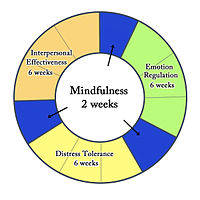
Photo from wikipedia
Background/Objectives With 20% of children and adolescents suffering from a behavioral and mental health (B/MH) condition, the urgency to prepare pediatricians to meet this need is paramount. This national study… Click to show full abstract
Background/Objectives With 20% of children and adolescents suffering from a behavioral and mental health (B/MH) condition, the urgency to prepare pediatricians to meet this need is paramount. This national study evaluates the perceived competence of pediatric residents and recent graduates in the assessment and treatment of B/MH conditions, characterizes variation across residency programs, and identifies program characteristics associated with high competence. Methods Cross-sectional survey of applicants for the initial certifying exam in pediatrics. Questions focused on B/MH training and perceived competence in 7 B.M. assessment skills (e.g. eliciting concerns with history or screening tools/rating scales; diagnosing ADHD, anxiety, or depression; assessing suicide) and 9 treatment skills (e.g. behavioral counseling; psychosocial interventions; dosing and monitoring medications; co-management). Two questions explored who should be competent in B/MH skills. Competence was rated on a 5-point scale, and high levels of assessment and treatment competence were defined as scores of >/4. Composite measures for B/MH assessment and treatment were calculated as mean scores for each domain. We examined variation in self-reported competence across programs and used linear regression to identify factors associated with high levels of competence at the program level. Results 62.3% (n=2,086) responded. 32.8% (n=595) reported high competence in assessment skills and 18.9% (n=337) in treatment skills. The majority of respondents agree that residents entering primary care as well as subspecialties should be competent in B/MH assessment and treatment. There were large variations in reported competence across programs. Respondents from smaller programs ( Conclusions Current and recent pediatric trainees do not report high levels of perceived competence in the assessment and treatment of children with B/MH conditions. The substantial variation across programs indicates the need for national standards for B/MH training.
Journal Title: Academic Pediatrics
Year Published: 2020
Link to full text (if available)
Share on Social Media: Sign Up to like & get
recommendations!